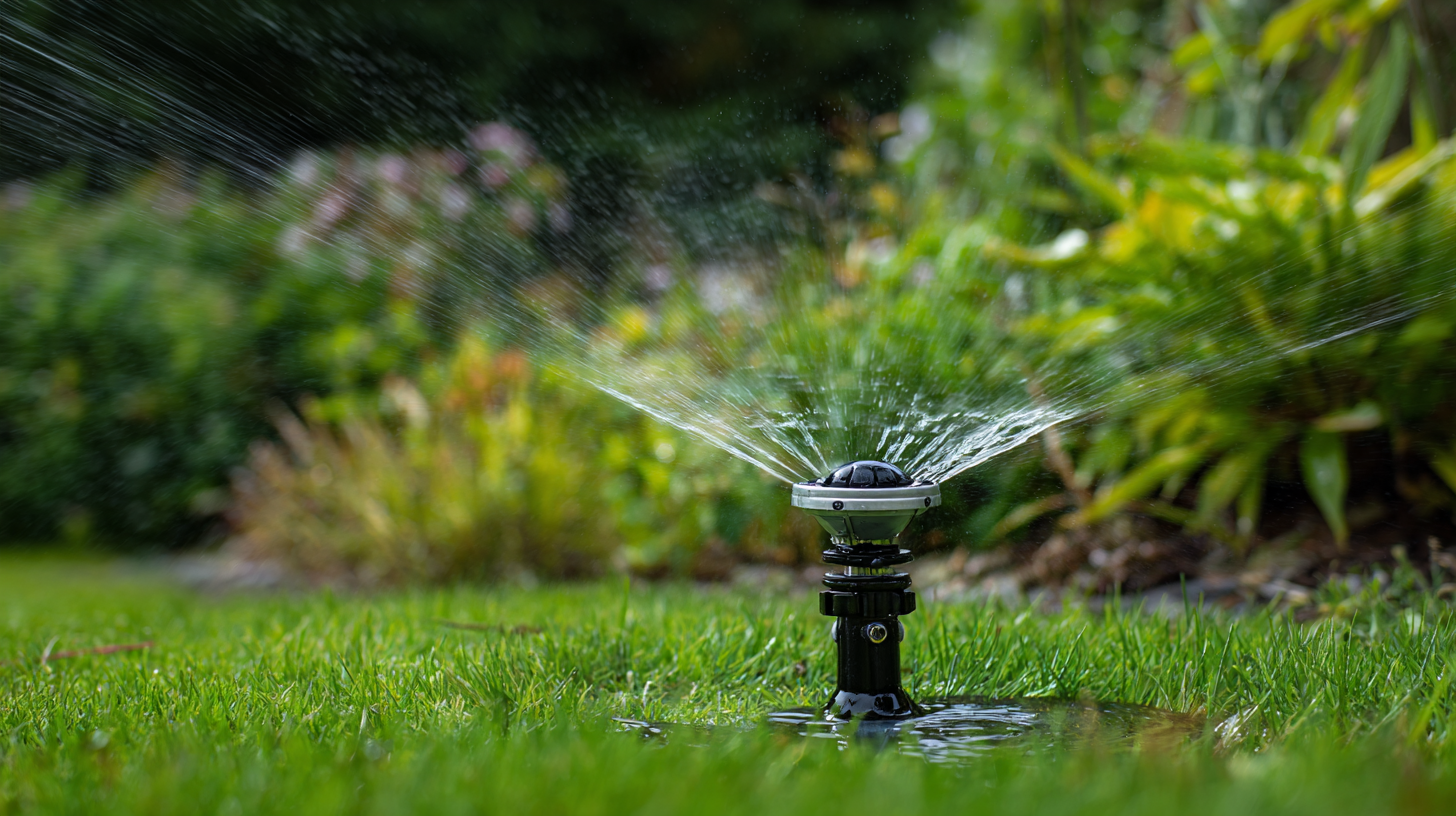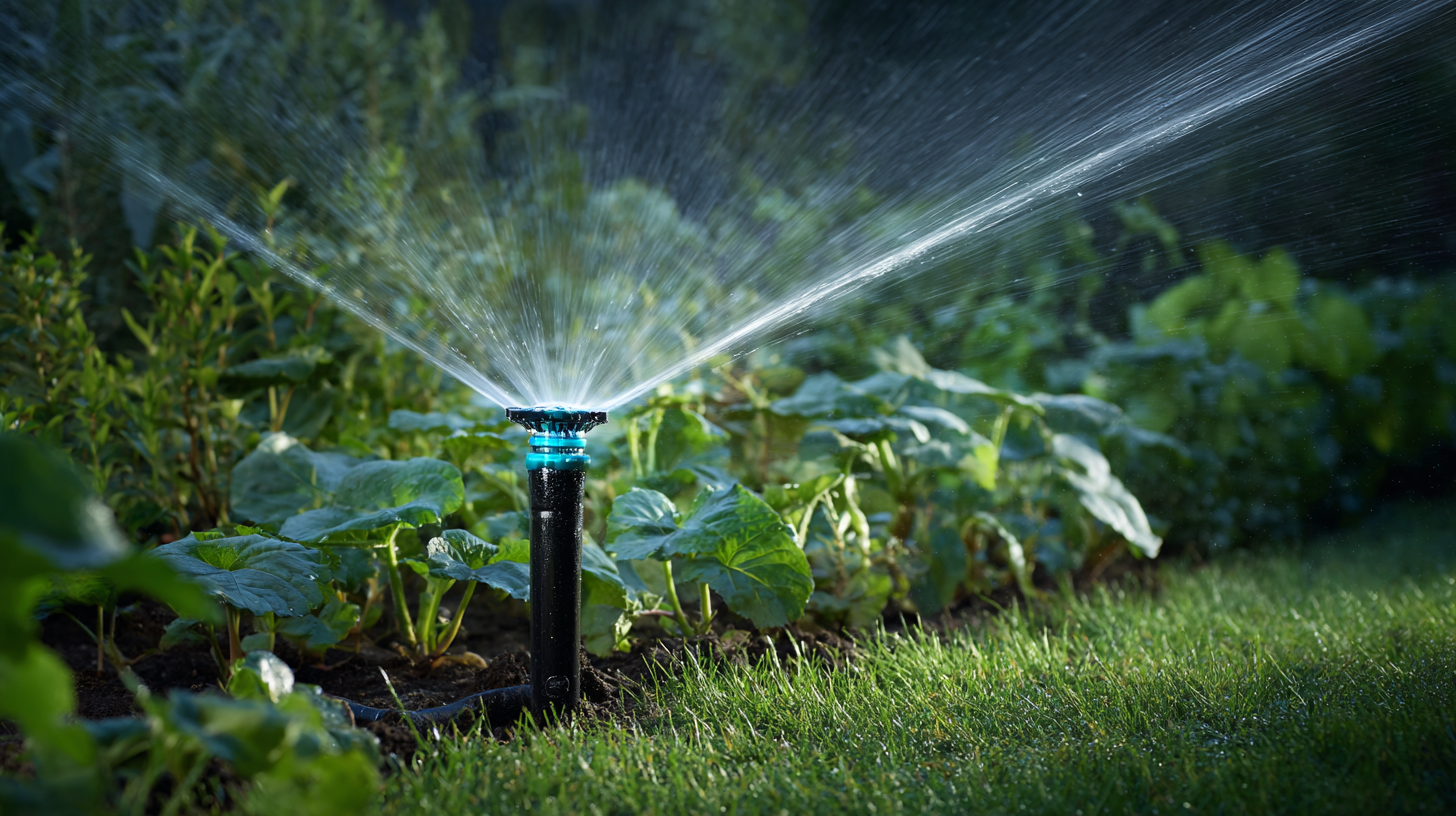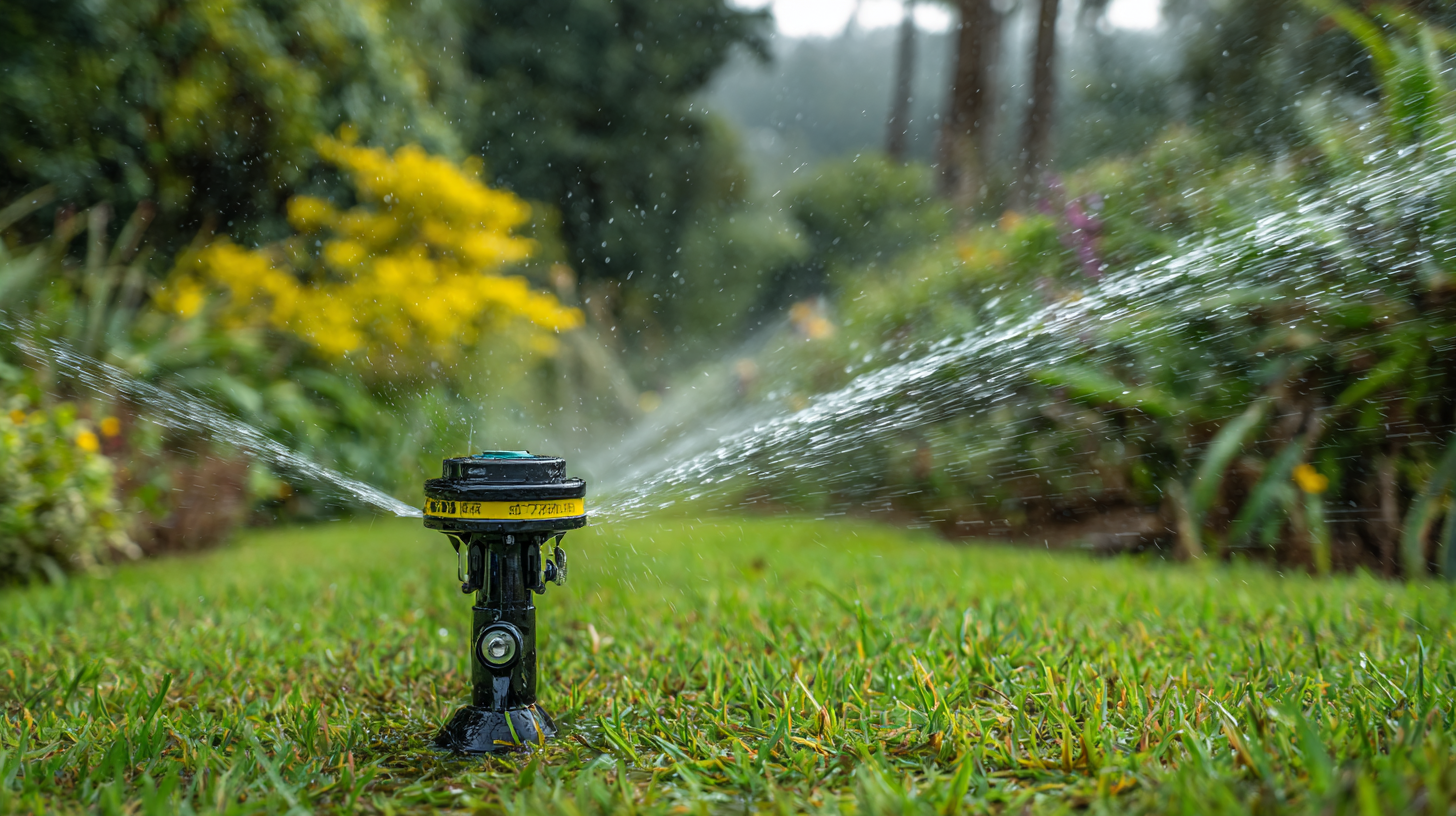As we move towards a more technologically advanced future, the integration of smart technology into everyday products, including ABS garden sprinklers, is set to revolutionize the gardening landscape by 2025. According to a recent report by Grand View Research, the smart irrigation market is projected to reach $2.3 billion by 2025, driven by increasing water conservation efforts and the growing adoption of smart home devices.

ABS garden sprinklers, known for their durability and efficiency, are now being enhanced with IoT capabilities, allowing for remote monitoring and automation of watering schedules. This advancement not only optimizes water usage but also empowers homeowners to maintain lush gardens with minimal effort.
With the rising awareness of sustainable practices, the demand for such innovative solutions is expected to surge, making smart ABS garden sprinklers a vital tool for modern landscaping.
The garden sprinkler industry is experiencing a significant transformation as smart technology continues to emerge as a game-changer. By 2025, it's projected that nearly 30% of new garden irrigation systems will incorporate smart features, driven by increasing demands for efficiency and sustainability. Smart sprinkler systems utilize IoT technology to gather real-time data on weather conditions and soil moisture, allowing for optimally timed watering schedules. According to a report by MarketsandMarkets, the smart irrigation market is expected to grow from USD 1.2 billion in 2020 to USD 2.7 billion by 2025, showcasing the widespread adoption of these technologies.
When considering upgrading your garden with smart technology, it’s essential to choose a system compatible with your existing setup. Many modern systems offer retrofit solutions that can be easily integrated with traditional irrigation systems. Additionally, look for models that feature mobile app connectivity, enabling you to monitor and control irrigation remotely.
Tip: To maximize water conservation, select a smart sprinkler system with weather-sensing capabilities that can adapt watering schedules based on rainfall and temperature. This not only reduces water waste but also promotes healthier plant growth by ensuring they receive the right amount of hydration. Remember to check for certifications that indicate water-efficient technology, such as the EPA's WaterSense label, when making your selection.
The evolution of irrigation technology has led to a paradigm shift from traditional methods to smarter, more efficient systems. A recent comparative study highlights the significant advantages of IoT-based smart irrigation systems, which utilize multidimensional time series modeling to predict soil moisture effectively. By leveraging two years of comprehensive data from a U.S. farm, these systems not only enhance agricultural water security but also cater to the increasing global food demand amid rising water scarcity. The use of advanced telemetry data and cloud computing enables farmers to make data-driven decisions, optimizing water usage while preserving crop yields.
For instance, Michigan farms adopting smart irrigation practices in 2024 can achieve up to a 30% reduction in water usage without compromising productivity. Similarly, innovative applications in Queensland’s macadamia orchards illustrate the potential for micro-sprinkler systems combined with sap flow monitoring to yield similar water savings. As agricultural stakeholders focus on sustainable practices, these smart systems represent the future of irrigation management, promoting efficiency and resilience in the face of climatic challenges while ensuring robust yields in food production.
This chart compares key performance metrics between traditional and smart ABS garden sprinklers expected by 2025. The data highlights the advantages of smart technology in terms of water efficiency, coverage area, cost, usability, and features that offer automation.
The emergence of smart technology is set to revolutionize garden maintenance, particularly in the realm of Automated Garden Sprinklers made from ABS (Acrylonitrile Butadiene Styrene). As we approach 2025, these innovative sprinklers will boast features designed to enhance efficiency and optimize water usage, making them a game-changer for eco-conscious gardeners.
One of the standout features will be smart sensors that monitor soil moisture levels, adjusting watering schedules automatically to prevent overwatering and ensure plants receive just the right amount of hydration.
In addition, integration with smart home systems will enable users to control their sprinklers remotely via smartphone apps. This convenience allows for real-time monitoring and adjustments based on weather forecasts, helping gardeners adapt to changing conditions. Enhanced connectivity with AI-driven algorithms will analyze past weather patterns and soil conditions, enabling the sprinklers to operate efficiently and save water. With these key features, smart ABS garden sprinklers are poised to not only transform the way we maintain our gardens but also contribute to sustainable water usage practices in the years to come.
As the world of gardening continues to evolve, smart technology is taking center stage, particularly in the development of Advanced Battery System (ABS) garden sprinklers. By 2025, these sophisticated irrigation systems will be tailored to meet the unique needs of various garden types and sizes, ensuring optimal water usage while promoting healthier plant growth.
For urban gardeners with limited space, smart sprinklers will offer customized settings that cater to small plots or container gardens. These systems will take into account the specific watering requirements of individual plants, allowing for targeted irrigation that conserves water. On the other hand, sprawling landscapes will benefit from larger, automated sprinkler systems that analyze soil moisture levels and weather patterns, adjusting watering schedules accordingly.
Tips for Optimal Use:
1. Always program your smart sprinkler system to reflect the specific needs of your garden type, whether it's a vegetable patch or a floral sanctuary.
2. Regularly monitor the system's performance through its app to make necessary adjustments based on seasonal changes.
3. Incorporate drip irrigation alongside your smart sprinklers for areas that require more focused watering, such as flower beds or vegetable rows.

As we look towards 2025, the landscape of ABS garden sprinklers is poised for transformative innovations driven by smart technology. The recent debut of "The Garden of the Future" exhibit at the RHS Chelsea Flower Show highlighted pivotal partnerships and advancements that are reshaping how we understand garden maintenance. Smart irrigation systems are at the forefront of this revolution, incorporating precision farming techniques that optimize water usage and significantly enhance crop yields. These systems will play a critical role in achieving sustainable gardening practices, making the best ABS garden sprinklers not only effective but also environmentally friendly.
Technological advancements are paving the way for features such as real-time data analytics and IoT connectivity, which empower gardeners to make informed decisions about their watering schedules. Innovations in irrigation, including enhanced drip systems and water-efficient sprinklers, ensure that we can cultivate beautiful gardens while conserving precious water resources. As these smart solutions become more accessible, the garden experience will evolve, reflecting a commitment to sustainability and efficiency, setting new standards for what we can expect in water management by 2025.

